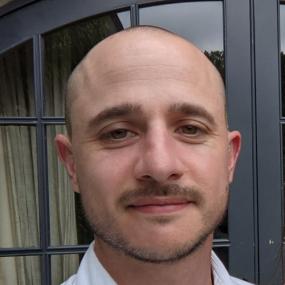Career Story: ICM and Acute Medicine

Fancy dualling with a specialty that allows for rest and recuperation, free from the demanding reality of critical care? Well look away now, this is acute medicine! Of course I am joking. And besides if you are contemplating this, the chances are that you are already a committed medic. We don’t go into medicine on a whim and despite its problems, medicine at its peak is rich with diagnostic conundra and complex problem solving that is rarely paralleled, and as a medical registrar you are rightly revered. But what does it mean to be a consultant in both specialties?
The good news is that, with regards to your job plan at least, this should be largely dictated by you. I am fortunate to work in a Trust, and with departmental leads, that are supportive of my dual role and encourage flexibility. My feeling of control over non-work time is far superior to my experience as a trainee. I choose to rarely work consecutive clinical weeks, set my own clinical split (approximately two thirds ICM) and my SPA time is almost exclusively in ICM where I have been encouraged to develop my interest in medical education as Faculty Tutor. As a result I do not find myself overwhelmed with governance responsibilities in two specialties.
My acute medicine PAs are Monday to Friday in-hours where I am scheduled for a week at a time of either AMU, morning post-take rounds or Same Day Emergency Care (SDEC), which offers some salvation from the ward. In the ICU, I work between two and seven days consecutively, and this time, (and whether nights are covered by a colleague) is negotiable.
I take satisfaction in what I can offer as an intensivist in AMU, and as a medic in ICU. With junior colleagues on AMU I discuss physiology, shock phenotypes or dispel myths and demystify critical care. I have helped aspiring intensivists to join us for taster weeks. For patients I can anticipate trajectories and make considered approaches to ICM colleagues, whilst providing support for patients and families when that is not an option. For both departments, I promote collaboration and understanding. Ultimately I believe that a plurality of experiences and clinical backgrounds benefits patients, trainees and the wider clinical environment.
There are, of course, challenges. Where dual-practising colleagues in other specialties assure me (variably) that their non-ICU work affords some respite, I cannot do the same. AMU is always busy and the turnover is staggering. No two days are the same, which is part of the attraction, but the mind can get overwhelmed, and increasingly comorbid patients with multi-system disease and frailty add to the complexity. As an intensivist I am committed to confronting treatment escalation at the front door, but at times these discussions wear me down.
Dual accreditation opens many doors. You are in a unique (and highly employable) position from which to negotiate your job plan. Ensure that your Trust encourages and can support your plans. Departmental culture and your relationship with colleagues will help you through harder times, so get to know your proposed place of work. In time you may even learn to love the inevitable query, ‘are you medics or ICU today?’ Perhaps I need to colour code my scrubs.
Share your ICM story
Do you have a career story you'd like to share with us? If so we'd love to hear from you.
